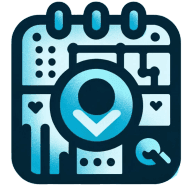Welcome to our deep dive into the latest trends in event technology. As we navigate through the digital age, the landscape of event planning and execution continues to evolve. Technology plays a pivotal role in this transformation, offering innovative solutions to enhance the event experience. This blog post will explore these emerging trends, shedding light on how they are reshaping the industry.
Virtual Reality: A New Dimension in Event Experience
Virtual Reality (VR) is revolutionizing the event industry. It offers an immersive experience that transports attendees to a different world. Event planners are leveraging VR to create unique and engaging environments that captivate audiences.
Imagine attending a music festival from the comfort of your home, feeling the pulsating beats as if you were there in person. Or, picture a corporate training event where attendees can practice new skills in a simulated environment. These are just a few examples of how VR is transforming the event experience.
Moreover, VR is not just about entertainment. It also provides practical solutions for event planning. For instance, planners can use VR to visualize venue layouts before the event, making it easier to plan logistics and troubleshoot potential issues.
In conclusion, VR is a powerful tool that is reshaping the event industry. It offers immersive experiences that engage audiences and practical solutions that streamline event planning.
Artificial Intelligence: The Future of Event Planning
Artificial Intelligence (AI) is another trend that is making waves in the event industry. AI offers a range of applications that can enhance event planning and execution.
One of the most prominent uses of AI in events is chatbots. These AI-powered tools can handle customer inquiries, provide event information, and even assist with ticket sales. They offer a convenient and efficient way for attendees to get the information they need.
AI can also help with event marketing. It can analyze data to identify trends and patterns, helping event planners to target their marketing efforts more effectively.
Furthermore, AI can streamline event logistics. For example, it can help with scheduling, resource allocation, and even predicting potential issues that could disrupt the event.
In essence, AI is a game-changer in the event industry. It offers innovative solutions that enhance customer service, improve marketing, and streamline logistics.
Live Streaming: Bridging the Gap Between Physical and Digital Events
Live streaming is another trend that is reshaping the event industry. It allows events to reach a wider audience by broadcasting the event online.
Live streaming offers a range of benefits. It allows people who are unable to attend in person to participate in the event. It also provides a platform for interactive elements, such as live chats and polls, which can enhance audience engagement.
Moreover, live streaming can also serve as a marketing tool. It allows event organizers to showcase their event to a wider audience, potentially attracting more attendees for future events.
In conclusion, live streaming is a powerful tool that can enhance audience reach and engagement. It bridges the gap between physical and digital events, offering a hybrid model that caters to a diverse audience.
Augmented Reality: Enhancing the Event Experience
Augmented Reality (AR) is another technology trend that is making its mark on the event industry. AR overlays digital elements onto the real world, enhancing the event experience.
AR offers a range of applications for events. For example, it can be used to create interactive displays or exhibits. It can also provide practical information, such as directions or schedules, in a visually engaging way.
Moreover, AR can also enhance event marketing. It can be used to create interactive advertisements or promotional materials that engage potential attendees.
In essence, AR is a versatile tool that can enhance the event experience. It offers interactive elements that engage attendees and practical solutions that enhance event planning and marketing.
Data Analytics: Driving Decision-Making in Event Planning
Data analytics is another trend that is transforming the event industry. It involves analyzing data to gain insights that can inform decision-making.
Data analytics can provide valuable insights for event planning. For example, it can help to identify trends in attendee behavior, which can inform marketing strategies or event programming.
Moreover, data analytics can also help to evaluate the success of an event. It can provide metrics on attendee engagement, ticket sales, and other key performance indicators.
In conclusion, data analytics is a powerful tool that can drive decision-making in event planning. It provides valuable insights that can enhance marketing, programming, and evaluation.
Internet of Things: Connecting the Event Experience
The Internet of Things (IoT) is another technology trend that is impacting the event industry. IoT involves connecting devices over the internet, allowing them to communicate and share data.
IoT offers a range of applications for events. For example, it can be used to create smart venues, where devices such as lighting, sound systems, and security cameras are connected and can be controlled remotely.
Moreover, IoT can enhance attendee experience. For example, wearable devices can provide personalized information, such as schedules or directions, based on the attendee's location or preferences.
In essence, IoT is a powerful tool that can enhance the event experience. It offers innovative solutions that streamline event logistics and enhance attendee experience.
Embracing the Future of Event Technology
As we've explored, technology is reshaping the event industry. From VR and AI to live streaming and data analytics, these trends offer innovative solutions that enhance the event experience. By embracing these trends, event planners can create engaging, efficient, and successful events. As we move forward, it's clear that technology will continue to play a pivotal role in the evolution of the event industry.

